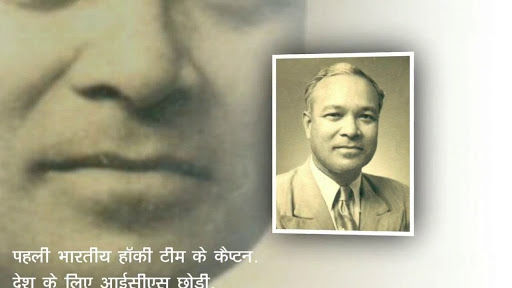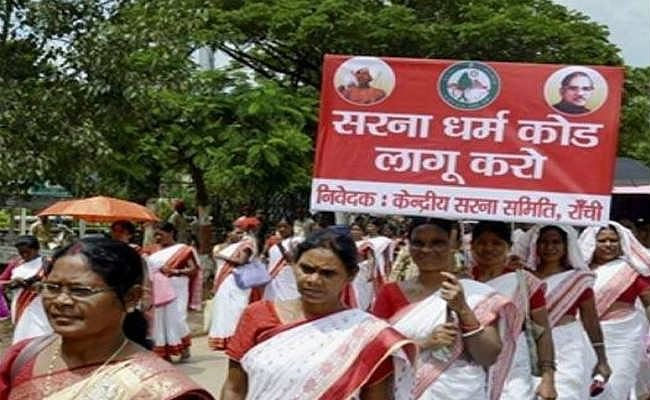An Adivasi Is Not Just A Forest Dweller: Remembering Jaipal Singh Munda And His Contributions
- Deepti Mary Minj
- Feb 1, 2021
- 6 min read
Updated: Mar 19, 2021

"We will not be satisfied with anything less than a separate state." This idea of creating an Adivasi-majority “Jharkhand” state-guided the political philosophy of Jaipal Singh Munda, a prolific writer, and politician. Born in Bihar province, Munda was an Oxford-educated Adivasi leader who became a member of the Constituent Assembly in 1946. It is through his interventions in the making of the Indian Constitution, that Adivasis and tribals gained reservations. As a highly-educated teacher, activist, sportsperson, and politician, Munda challenged the stagnated concept of what it meant to be an “Adivasi”. He is one of the pioneering leaders who placed Adivasi movement in the "modern" democratic system.
While there have been other Adivasi leaders who organized movements such as Birsa Munda and Manjhi; they were mostly inspired by religious and spiritual beliefs. However, Jaipal Singh Munda, as a key spokesperson of Adivasi rights in the Parliament, highlighted Adivasi issues, rights, and demands among the educated, modern and political officials of equal stature.
Munda dismantled the archaic belief that an Adivasi exists only as a forest dweller who lives within his or her primitive systems of kinships, economy, and customs. As a parliamentarian, Munda was often questioned about his Adivasi identity because of his high education and stature. His “authenticity” as a “real” Adivasi became a topic of discussion. Munda countered this shallow criticism by addressing the members of Bihar Premiere in Mundari (Adivasi language of Munda tribe of Chotanagpur plateau). He began the meeting by declaring:
"I only want to teach the Prime Minister (Jawaharlal Nehru) that I can talk my vernacular. In his Legislative Council speech, he has implied that I do not know my mother tongue. What has my ability or otherwise to speak my vernacular to do with the strength of the argument for separation (of Bihar province to form an Adivasi state)... We (Adivasi Sabha) had gone to speak on behalf of nearly one hundred lakhs of people to clamor for the security of our hearths and homes..." (Adivasidom: Selected Writings & speeches of Jaipal Singh Munda, 2017, p. 26).
The attack on his identity was merely a distraction from his just d" This idea of creating an Adivasi-majority “Jharkhand” state-guided the political philosophy of Jaipal Singh Munda, a prolific writer, and politician. Born in Bihar province, Munda was an Oxford-educated Adivasi leader who became a member of the Constituent Assembly in 1946. It is through his interventions in the making of the Indian Constitution, that Adivasis and tribals gained instream” by gaining education and joining various professions.
However, it is also true that the Adivasi’s access to resources such as education, employment, social and cultural capital is still due to be available to them. Thus, the Adivasis are not yet part of the larger society in a true sense because of the imposed backwardness. Similar to Dalits, who despite being a member of the society are in real terms actually excluded as they have been historically denied social and economical resources. Therefore, Adivasi identity is changing as it is limited not to original societies organized around kinships and geography; but a new dimension is added as they have encountered non-tribal society.
This also brings out Munda's rejection of mainland people who dictate the conditions within which an Adivasi must exist. One such case involved the struggle between prohibition and the Adivasi’s historical relationship with home-brewed alcohol. In his Republic Day article in 1950, Munda objects to the prohibition on liquor by writing:
"Prohibition is a sore subject of most (social) workers in India who think drinking is a root of all evil."
He seems to be hinting towards the anti-liquor sentiments espoused by M.K. Gandhi who has been a staunch opponent of liquor.
Munda marks the difference and uniqueness of Adivasi culture from other societies. He also speaks against the biased laws that don't understand, respect and encourage Adivasi culture. He claims that people have refused to see the simplicity and beauty of the Adivasi lifestyle. The philosophy of Adivasi life is based on cherishing and nurturing the natural joys of life bestowed by nature, enjoyed in communal sharing and harmony.
As the legislative team failed to act on these differences, Munda openly criticized many prominent leaders such as Jawaharlal Nehru, Rajendra Prasad, and Vallabhai Patel. The aboriginal who have been pushed inside the interior of forests have long been residing in isolation. They have been excluded from administrative impacts. But not anymore.
Munda states that the 1941 Census estimated the Adivasi population at 24.8 million with a ten percent increase. However, in 1950 the President declared the population at 17.9 million from the estimation of Governors and Rajpramukhas. He says that this faulty estimation was intended to reduce the Adivasi tracts and ultimately their political representation. While politicians should have used the Constitution to confer democratic rights to Adivasis; they actually used the “law and order clause” to suppress and silence Adivasi movements and voices. Munda, therefore, demanded for a division of Bihar so that Adivasis have their own state and focus on developing themselves.
Munda rejected all forms of communal politics. His political struggle is based on the "identity" of Adivasi. A large population of India is actually oppressed because of their identity. Today, a new type of division is being sowed among the Adivasi. This is the distinction between the Christian-converted and Sarna Adivasi. This distinction is been fueled in the name of "ghar-vapsi", and legislatively coerced by proposing that Christian Adivasi should lose their Adivasi identity and associated affirmative actions of reservation in education and employment.
As has been highlighted earlier, the term ‘Adivasi’ does not refer to a static identity but has transformed through its encounters with various factors. The reason for conversion of Adivasis has been due to the assistance provided by missionary organizations in terms of education and health which paved the path for employment. Additionally, they have been crucial in filing petitions against the zamindars and banias who grasped Adivasi land. The Adivasi decision to be converted to Christianity would not have originally emerged if the Indian dikus (outsiders) not exploited them. Therefore, the idea of ghar-vapsi to Hinduism, of both converted and unconverted Adivasis, is merely communal politics that does not have the interest of the Adivasis at its heart. For years, the Adivasis have been fighting for the implementation of the Sarna code that recognizes “Sarna” as a separate religion in the Constitution. However, the struggle has been maligned by radical-Hindu organizations as a “missionary-propaganda”. If it had been so, displacement, dilution of public services, and reservation should actually not have occurred.

Munda's demand for a separate state can also be viewed in the dilution of the country’s federal structure. The Jharkhand Assembly election of 2019 (and even other states) was fought on the basis of popular national leadership rather than on the accountability of local leaders. Further, the national government has issued various laws that reduce the state government's power to make decisions in the specified, local interest of people. This is especially detrimental to states such as Jharkhand where interests and demands of Adivasi often have been neglected and misunderstood. For instance, the central government has proposed for the commercialization of coal industry and the transfer of 50 coal blocks to private players that will adversely impact local employment and end state monopoly over coal. Adivasi groups have been opposing this move.
Munda's politics aimed at gathering and maximizing support from like-minded and similar interest groups. He sought solidarity from the Anglo-Indian group, the Muslim League and even some Hindu organizations to gain a separate state. Therefore, rather than reducing Munda’s career as a quest for identity, his politics was framed on the geographic deprivation of Chotanagpur plateau and its people, which later included even non-tribal people. Though Munda received criticism for being an ‘opportunist’, this actually highlights his political prudence necessary to push for a minority interest group.
Munda was a rational and inclusive politician who promoted the rights of Adivasis on their land and resources. As a member of the Constituent Assembly, he pushed for reservation for Adivasis. Unfortunately, over the years, his efforts have been betrayed through the persecution of activists who fight for Adivasi rights. A glaring example is that of the arrest of Stan Swamy who has been advocating against PESA and forest encroachment. But, on the other hand, the rise of Adivasi activism and Adivasi empowerment owes its advancement to the man who first cleared the path for others to follow.
This article is created as a part of the Adivasi Awaaz project, with the support of Misereor and Prayog Samaj Sevi Sanstha.




Banking and money experts are pursued by any remaining businesses. Along these lines, in the event that you have schooling in banking, money, or protection Rojgar samachar, you don't need to work in a bank or a monetary establishment. With an expert degree, you can join some other association as a monetary examiner, counselor, business investigator, and so forth.
ITI trades and courses base on capacity improvement understudies iti result. They produce gifted specialists consistently and therefore encourage the skilled work power in India! Planning trades are related to the field of planning assessments. Courses available under this trade are well versed in nature.